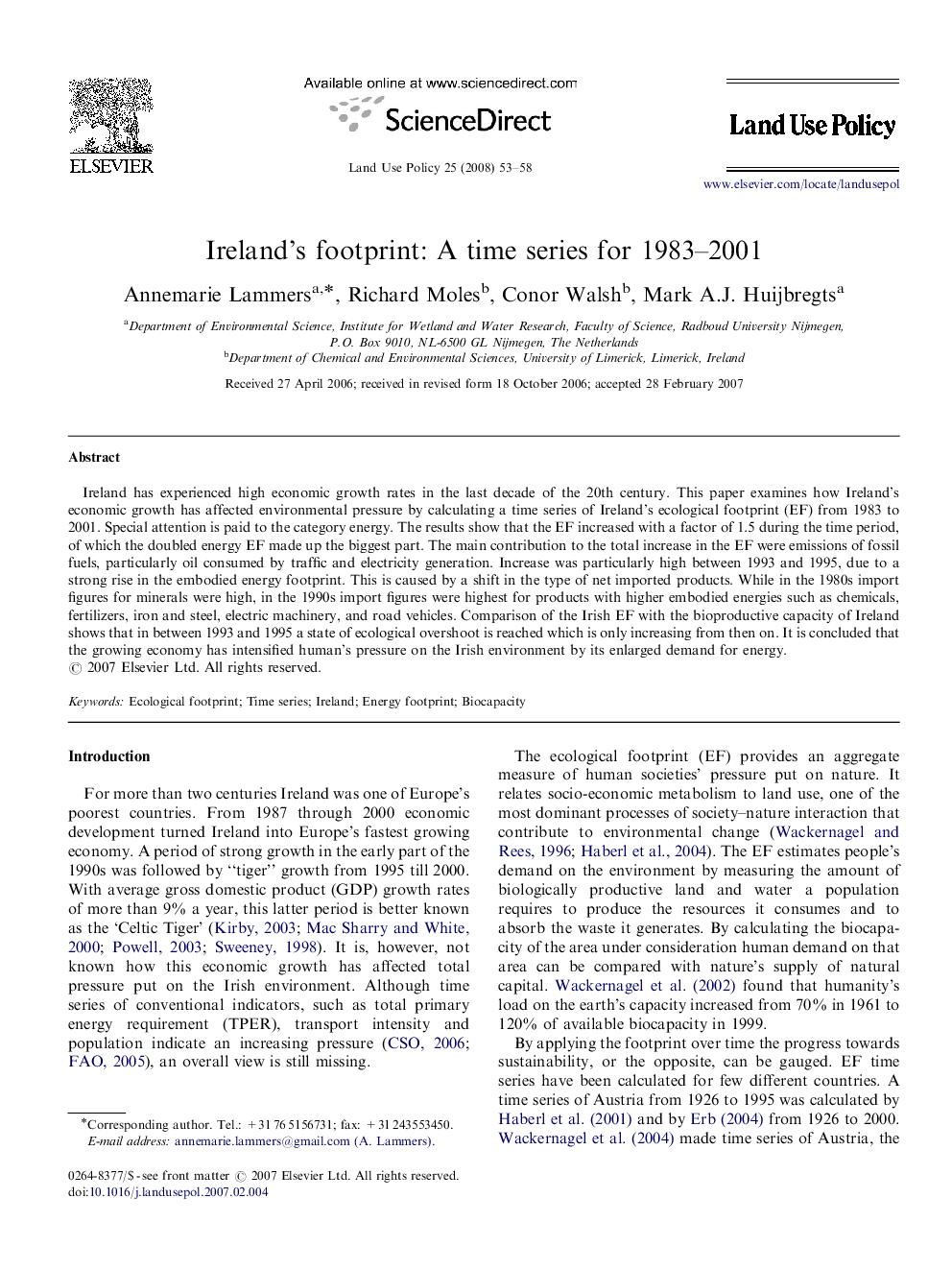| Article ID | Journal | Published Year | Pages | File Type |
|---|---|---|---|---|
| 93676 | Land Use Policy | 2008 | 6 Pages |
Ireland has experienced high economic growth rates in the last decade of the 20th century. This paper examines how Ireland's economic growth has affected environmental pressure by calculating a time series of Ireland's ecological footprint (EF) from 1983 to 2001. Special attention is paid to the category energy. The results show that the EF increased with a factor of 1.5 during the time period, of which the doubled energy EF made up the biggest part. The main contribution to the total increase in the EF were emissions of fossil fuels, particularly oil consumed by traffic and electricity generation. Increase was particularly high between 1993 and 1995, due to a strong rise in the embodied energy footprint. This is caused by a shift in the type of net imported products. While in the 1980s import figures for minerals were high, in the 1990s import figures were highest for products with higher embodied energies such as chemicals, fertilizers, iron and steel, electric machinery, and road vehicles. Comparison of the Irish EF with the bioproductive capacity of Ireland shows that in between 1993 and 1995 a state of ecological overshoot is reached which is only increasing from then on. It is concluded that the growing economy has intensified human's pressure on the Irish environment by its enlarged demand for energy.
